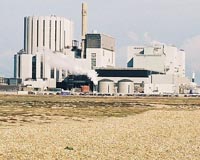 |
Tehran (AFP) Feb 10, 2010 Iran on Wednesday spurned a US offer to supply it with medical isotopes if it stops further enriching uranium as world powers warned the time for diplomacy was limited and the sanctions clock was ticking. The foreign ministry shunned the US offer as "not logical," after State Department spokesman Philip Crowley floated the idea on Tuesday when Iran said it had begun enriching uranium to 20 percent for a Tehran research reactor. "Shutting down the reactor or stopping the production of medicine is not the solution," foreign ministry spokesman Ramin Mehmanparast told reporters. "This proposal is not logical." The Islamic republic's announcement that it was proceeding to further enrich its low-enriched uranium (LEU) to 20 percent sent alarm bells ringing in the West, which suspects Iran's nuclear project has military aims despite denials. Russia -- the Islamic republic's long-time nuclear ally -- has also toughened its stance after Iran's move to further boost enrichment. In Moscow, deputy foreign minister Sergei Ryabkov told the Interfax news agency the prospect of new sanctions against Iran was now more realistic. "In this new situation, of course, the question of sanctions, of drafting a resolution for new sanctions has become more realistic," he said, also adding that in Russia's view "sanctions were not a solution to the problem. In the wake of Tehran's declaration, Crowley said in Washington the United States would propose to UN watchdog the International Atomic Energy Agency an alternative way to supply medical isotopes to treat Iranian cancer patients. But US officials signalled that the time for diplomacy may be coming to an end and in Washington the Treasury Department announced new unilateral sanctions. The department designated an Iranian Revolutionary Guard Corps commander and four subsidiaries of a construction firm owned or controlled by the elite force as "proliferators of weapons of mass destruction and their supporters." The move, which subjects the five to an asset freeze, came a day after President Barack Obama pressed for a "significant regime of sanctions" to curb Iran's nuclear ambitions. The major world powers of the UN Security Council permanent five plus Germany have so far followed a "dual track" approach of negotiations coupled with punitive action in a bid to make Iran suspend uranium enrichment. "We had a dual track but it is less and less likely that we are going to be able to maintain that dual track and not move to the pressure track very soon," Ellen Tauscher, US Under Secretary of State for Arms Control and International Security, told reporters. "We are running out of time to do what is right... and to ease the tension in the region," she said at NATO headquarters. In shooting down the medical isotopes idea, Mehmanparast said world powers should instead cooperate with Iran and allow it to expand its uranium enrichment programme. "The solution is that the other side cooperates to increase (the number of) these reactors... and meet the needs of patients," he said, again dismissing threats of a fourth round of UN sanctions against Iran. Washington and other world powers, Mehmanparast said, had "better adopt a realistic approach instead of economic and political pressures to deprive us of our basic rights." "We will study any proposals which are official and written for the supply of fuel for the Tehran research reactor," the ISNA news agency quoted him as saying. Specialists say that once Iran enriches uranium to 20 percent, it could proceed to the 93 percent needed to produce nuclear weapons since the technology is the same. Tehran insists its atomic programme is for civilian use only. "It goes in the wrong direction, that is not building confidence," Tauscher said. Iran's move creates "significant doubts amongst their regional neighbours and the world community generally as to what their motives are," she added. "This is not the time where there ought to be that much confusion about what your motives are." burs/kir
Share This Article With Planet Earth
Related Links Nuclear Power News - Nuclear Science, Nuclear Technology Powering The World in the 21st Century at Energy-Daily.com
 Britain, India agree civil nuclear deal: ministers
Britain, India agree civil nuclear deal: ministersLondon (AFP) Feb 4, 2010 Britain and India have agreed the text of a deal on civil nuclear cooperation, ministers from both countries announced after talks in London on Thursday. "The two sides have discussed and negotiated a civil nuclear energy cooperation agreement and we hope that will be signed soon," Indian Commerce Minister Anand Sharma said during a visit for trade talks. His British counterpart, Busines ... read more |
|
| The content herein, unless otherwise known to be public domain, are Copyright 1995-2010 - SpaceDaily. AFP and UPI Wire Stories are copyright Agence France-Presse and United Press International. ESA Portal Reports are copyright European Space Agency. All NASA sourced material is public domain. Additional copyrights may apply in whole or part to other bona fide parties. Advertising does not imply endorsement,agreement or approval of any opinions, statements or information provided by SpaceDaily on any Web page published or hosted by SpaceDaily. Privacy Statement |